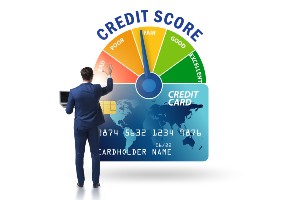
If your credit is less-than-perfect, there are things you can do to improve your situation. These tips apply no matter where you stand. If you’ve filed for bankruptcy and you want to rebuild your credit, these tips help. If your goal is to turn things around and avoid bankruptcy, these things will also help.
What are five things you can do that will give you better credit?
1. Pay Your Bills on Time
This one might be obvious ie you want to boost your credit score, but we can all use a reminder every so often: Pay your bills by their due date. Your payment history is the most important factor in calculating your credit score. Even one late payment affects your credit negatively, even if you have a solid payment history.
Credit is all about “what have you done for me lately?”
Not only should you pay the debts on your credit report, but you also need to be responsible for your other payment obligations.
For example, your utilities or phone bill or court-ordered obligations might not appear on your credit report, but not paying them affects your credit. Make a list of all of your debts and payment obligations including their due dates, and make sure your budget accommodates these obligations.
2. Open and Keep Active Accounts in Good Standing
Although it might seem as if the less you use the credit the better, this is not the case. Your credit score is based on your responsible use of credit. Avoiding credit won’t hurt you as much as abusing it, but it won’t help you much either.
Having accounts in good standing that you use and pay on time is an important part of boosting your score. If you’re emerging from bankruptcy, a secured credit card can help you increase your score. If you have good credit but you want to raise it higher, consider opening a credit card and keeping your balance at about 10 percent of the credit limit.
3. Avoid Collections
Most people miss a payment due date now and then. In most cases, it’s a small ding on your credit.
However, if you have an account end up in collections, you’ll see a significant dip in your score. Getting an account sent to collections is one of the biggest mistakes you can make when trying to boost your credit score.
Accounts sent to debt collection are serious delinquencies and have a significant impact on your score. Even if it’s a small debt, you should make every effort you can to avoid having it sent to collections.
To learn more about how collections accounts affect your credit, check out this article from NerdWallet.
4. Keep Your Balances Low
One of the best ways to gradually increase your credit score is to work on paying down your balances. Creditors want to see that you are using credit, but that you have as much credit as possible available.
Financial experts recommend keeping balances below 30 percent, but 10 percent is ideal.
Additionally, you’ll want to check your credit report to ensure your credit limits are correct. For example, if a creditor raises your limit, make sure this increase appears on your credit. The higher percentage of unused credit you have available to you the better your score.
5. Keep Old Accounts Open and Active
Many creditors close credit accounts that haven’t been used in a while. This might not seem like a big deal, but it negatively impacts your credit. If you have a credit card you haven’t used in a while, make a small purchase and pay it off as soon as you can.
Our 720 Credit Score Education Program Helps You Boost Your Credit Score After Bankruptcy
Boosting your credit score takes work, but it’s worth the effort. For more tips or to speak to someone about post-bankruptcy credit tips, contact the Law Office of Robert M. Geller at 813-254-5696 to schedule a free consultation.



























![Signs That You May Need to File Bankruptcy [Infographic]](https://djml3wkzi26ea.cloudfront.net/wp-content/uploads/2021/01/signs-chap7-v-chap13.jpg)
![How To File for Bankruptcy [Infographic]](https://djml3wkzi26ea.cloudfront.net/wp-content/uploads/2020/07/bankruptcy-steps-infographic-web.jpg)










